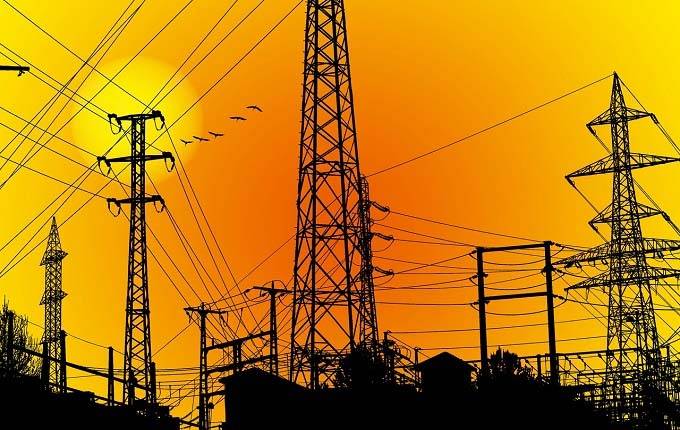Business
The Untold Human Cost Of Nigeria’s Electricity Crisis

But beyond the inconvenience, the lack of consistent electricity power supply has a profound human cost, impacting everything from health to education and livelihoods.
The hum of generators is a common feature of many Nigerian major cities, underscoring a harsh reality: reliable electricity is a luxury in the country.
For business owners like Muhammed Bello, a barber in Lagos, the power cuts mean a hefty financial burden. He spends an average of N200,000 monthly to fuel generators to keep his workshop running.
This cuts into his profits and limits his ability to grow his business.
“I don’t know what to do,” Bello said.
Inside a cramped apartment in Yaba, Bimbo Agboola, a single mother of three, struggles to keep her children cool. With the power out for the past 12 hours, the stale air hangs heavy.
“We can’t afford a generator,” she said, wiping sweat from her brow. “The fans are useless, and the food spoils quickly. My youngest gets sick so often in this heat.”
Across town, in a makeshift classroom, Abayomi Okanlawon struggles to be heard over the drone of a noisy generator.
The fumes add to the already stuffy room, making it difficult for students to concentrate. “We can only afford a few hours of generator power a day,” said Okanlawon, with frustration evident in his voice. “The rest of the time, we’re in the dark. It makes learning so much harder.”
Analysts who spoke to BusinessDay said the lack of electricity isn’t just an inconvenience but is also a health hazard.
“Hospitals rely on generators to keep vital equipment running, but the cost of fuel can be crippling,” said Olatunji Osunlusi, a medical doctor at Hope Gates Hospital, Isheri.
He added: “Clinics struggle to store vaccines and medications properly, putting lives at risk. At night, the darkness creates a breeding ground for mosquitoes, increasing the spread of malaria and other diseases”.
Beyond the immediate health concerns, BusinessDay’s findings showed the lack of power stifles economic opportunities.
For instance, those who spoke to BusinessDay said small businesses, the backbone of the Nigerian economy, lose valuable income due to frequent outages.
Inuwa Muhammad who sells soft drinks in Isolo said he closed his shop due to lack of electricity and cannot afford to power his refrigerators with generators.
Related News:
- Ogun Gov’t Shuts Down Food Agro And Allied Industries Limited For Environmental Violations
- BREAKING: Super Eagles Defeat Ghana 2-1 In Marrakech Friendly
- Labour Party: Utomi’s 3rd Force Movement Asks Abure To Postpone Convention
“My capital is not more than N200,000 and what I am getting from the business cannot sustain it if I use a generator to power the refrigerators,” he said.
According to the World Bank, the economic cost of power shortages in Nigeria is estimated at around $28 billion. The figure is equivalent to two per cent of Nigeria’s Gross Domestic Product.
The bank says that about 47 percent of Nigerians do not have access to grid electricity and those who do have access, face regular power cuts.
Adebayo Adelabu, minister of power, recently revealed that the government is taking steps to ensure reliable supply in the long term and substantially increase power distribution in the short term.
He listed vandalism and power theft as some of the pains in the sector, bemoaning the destruction of power transmission and distribution assets.
The minister said: “This is not only frustrating our efforts to achieve uninterrupted power supply. It’s driving the nation backward. It’s driving us backward. And our people must realise this, that these assets belong to all of us. We must protect it jealously. It’s the taxpayers’ money.
“They are not cheap in any form. I keep saying it. They cost dollars to install. When they are damaged, to replace them, it also costs dollars.”
Adelabu urged Nigerians to exercise a little patience and trust the government to get the job done.
He added that the government was waiting for the final numbers before commencing the payment of gas-to-power legacy debts, to ensure that everyone went back to production and improved generation.
He said: “We have had so many meetings. The state we are now is to reconcile the numbers and agree on the numbers. So within the next one week, I believe that NBET will come up with this and we’ll have validated numbers for us to start paying the debts.
“Beyond paying the legacy debts, we’re moving around 4,000mw, 4,500mw and it is no longer acceptable. So what we are looking at is to have an agreement to ramp up to a minimum of 6,000mw within the next three to six months.
“I believe we still have infrastructure to generate between 6,000mw and 6,500mw. In terms of the generating companies, I have no doubt in my mind that the existing capacity can give us 6,500mw once there is stability in supply of gas.”
Adelabu said the current administration was committed to addressing the root cause of the problems, explaining that as of today, there is an assurance by the Transmission Company of Nigeria of over 8,000MW or about 8,500MW wheeling capacity.











Pingback: Tinubu: Those Alleging Malicious Embellishment Of Budget Didn’t Understand The Arithmetic - Eaglesforesight